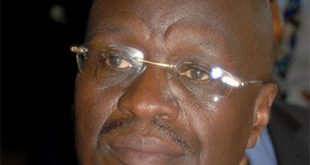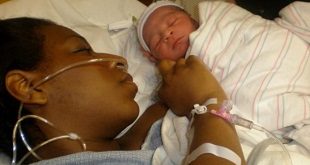
By Flavia Nassaka
Starts vetting all voter education messages for `bias’
TOPOWA’ is a commonly used word in Ugandan street-speak, especially among the youth. Though its origin is unclear, it has been generally understood to mean “Don’t give up”. This word has been taken up by many including advertisers. For instance, a telecom company is using it in a major advertising campaign.
There was, therefore, no query raised when a Civil Society Organization – Citizens’ Coalition for Electoral Democracy in Uganda (CCEDU) in mid-September picked ‘Topowa’ as the mobilisation catch-word for its civic education campaign in the run-up to the 2016 elections.
Since the launch of this campaign on Sept 22, the message dubbed, ‘Topowa. Honor your vote. Your vote counts’ has been making rounds on several media platforms. On television, the message is accompanied with videos and photos showing rundown public services including roads, hospitals, and unhygienic low cost housing. In the message, the commentator says this can be changed by a vote. Not everybody is happy with this message.

On November 29, the Electoral Commission (EC) ordered CCEDU to withdraw it or else be disaccredited from the list of CSOs monitoring and observing the 2016 election.
Crispy Kaheru, the coordinator of CCEDU says although the Commission had written to them saying that they were airing baised voter education information, the letter did not specify which part of the message pointed to a particular candidate or political party.
“I am hurt, I am deeply pained by this dishonesty,” said Kaheru.
While speaking to members of civil society and journalists on Nov. 30, EC chairman Badru kiggundu said the message was showing disturbing pictures of a potholed road “which could be interpreted wrongly by the voters”.
“Topowa voter education message running on television is biased and it violates the guidelines and Memorandum of Understanding that we signed at the beginning of our partnership,” he said. He did not say against whom the message is biased but said he would revoke the accreditation of any CSO that exhibits partisanship.
“These organisations are not political parties to be involved in partisan politics,” he said.
He also issued a directive that for all election related messages designed or sponsored by CSOs to be run in the media or any form of public domain, they must first be vetted by his Commission.
Sam Rwakoojo, the EC Secretary said voter education messages should be coined in a way that does not arouse suspicions of bias.
“But the Topowa message may be interpreted as calling upon people to change the status quo, a thing the commission finds partisan.
“We don’t expect a voter educator to start asking voters to change the way they vote. All we need is for the CSOs to provide them with the relevant information that can encourage voters to participate. What they choose is for them to decide. CSOs should put it in mind that they are representing a Commission that is not partisan.”
Under the Constitution, the Electoral Commission is mandated to conduct voter education before general elections are held so as to educate voters on what they can do from the time the road map is launched through the polls and after elections.
The Commission has apparently delegated the function of voter education for the 2016 polls to 61 CSOs, including CCEDU. However, the requirement for the CSOs to present their campaigns for vetting before they are launched is a new development. CCEDU has done voter education in previous elections without encountering it.
Livingstone Sewanyana, the Executive Director of Foundation for Human Rights Initiative says he understands the Topowa message to be designed on getting voters, who are increasingly staying away from the ballot, to come and vote.
“By showing them what their vote can change things will definitely make people think deeply about whether the individual they are voting for has the ability to deliver the social service they need. This was basically intended to bring up those who had lost hope in elections,” he says.
Since 1996, when Uganda held its first general elections after the war that brought President Yoweri Museveni’s NRM to power, voter turnout has seen a worrying downward trend.
According to the International Institute for Democracy and Electoral Assistance data, 72.6% of the 8.4 million Ugandans who registered cast their vote in 1996. In the 2001 elections, 70% of the 10.7 million turned up whereas in 2006, 69% of 10.4 million registered voters turned out to vote. In 2011, the turnout slumped even further to just 59% of the 14 million eligible voters. It could only get even worse in 2016.
Experts put the number of those who might opt to stay away from the polling stations to have increased by over 80% despite the fact that the number of eligible voters has been increasing. 15.3 million Voters are expected to turn up for elections in 2016 this represents an over one million increase from those who registered to vote in 2011. By the time we went to press, CCEDU had not withdrawn the Topowa campaign.
 The Independent Uganda: You get the Truth we Pay the Price
The Independent Uganda: You get the Truth we Pay the Price




The color of t-shirts